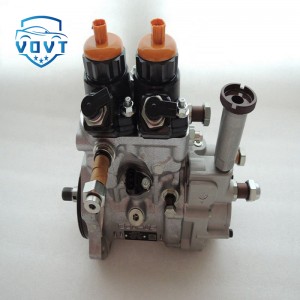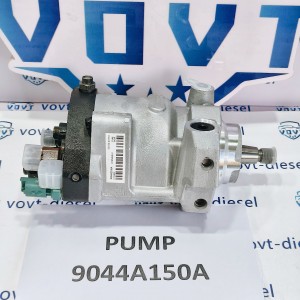Diesel Fuel Injection Pump 0 460 314 027 VE4/12F1150CR92 Engine Auto Engine Part
products description
| Reference Code | 0 460 314 027 |
| MOQ | 1 PCS |
| Certification | ISO9001 |
| Place of Origin | China |
| Packaging | Neutral packing |
| Quality Control | 100% tested before shipment |
| Lead time | 7~15 working days |
| Payment | T/T, Western Union, Money Gram, Paypal, Alipay, Wechat |
Study on the Application of Novel Composite Materials in Diesel Fuel Pumps
Abstract
The continuous pursuit of higher efficiency, lighter weight, and improved durability in diesel engines has driven the development of advanced materials for fuel system components. Among these, composite materials have shown great potential in replacing conventional metallic structures within diesel fuel pumps, offering advantages in weight reduction, corrosion resistance, and wear performance. This study investigates the application feasibility, mechanical behavior, and tribological characteristics of novel composite materials used in critical components of diesel fuel pumps, such as plungers, valve assemblies, and pump housings.
A series of fiber-reinforced polymer composites and metal–matrix composites (MMCs) were fabricated and tested under simulated high-pressure (up to 200 MPa) and high-temperature (up to 150 °C) working conditions. Experimental results revealed that carbon-fiber-reinforced polymers (CFRPs) exhibited superior specific strength and dimensional stability, reducing the overall pump mass by approximately 28% without compromising mechanical integrity. For wear-critical regions, aluminum–silicon carbide (Al–SiC) MMCs demonstrated excellent anti-scuffing and low-friction characteristics, maintaining surface roughness below Ra = 0.6 μm after extended endurance tests.
Finite element simulations (FEA) and computational fluid dynamics (CFD) analyses were conducted to evaluate the structural deformation and flow distribution of pumps with composite components. The results confirmed that the integration of lightweight materials did not induce noticeable deformation or flow instability under cyclic pressure loads. Moreover, the reduced thermal conductivity of polymer composites contributed to more stable temperature control during long-term operation.
Corrosion resistance tests indicated that the composite materials effectively prevented fuel-induced chemical degradation compared to traditional alloy steels, particularly under the influence of biofuel blends. The fatigue life of composite plungers was improved by over 35%, owing to better stress distribution and crack propagation resistance.
In conclusion, the study confirms that novel composite materials offer a promising path toward lightweight, efficient, and durable diesel fuel pumps. However, challenges remain in interface bonding, thermal aging, and manufacturability. Future research will focus on hybrid composite structures, surface modification techniques, and in-situ monitoring methods to further enhance reliability and production scalability.























